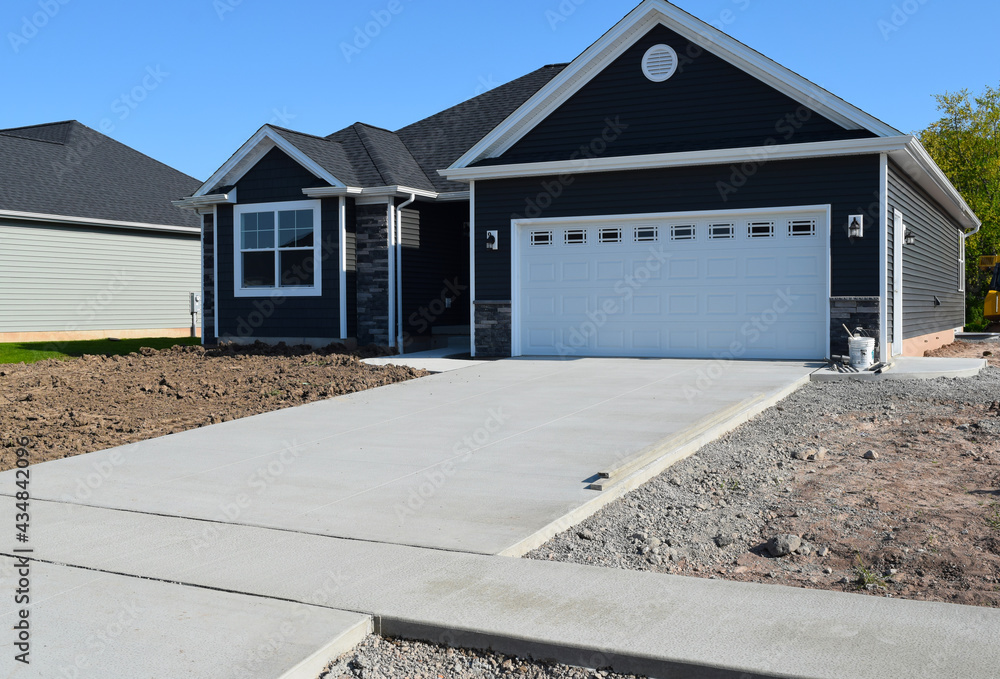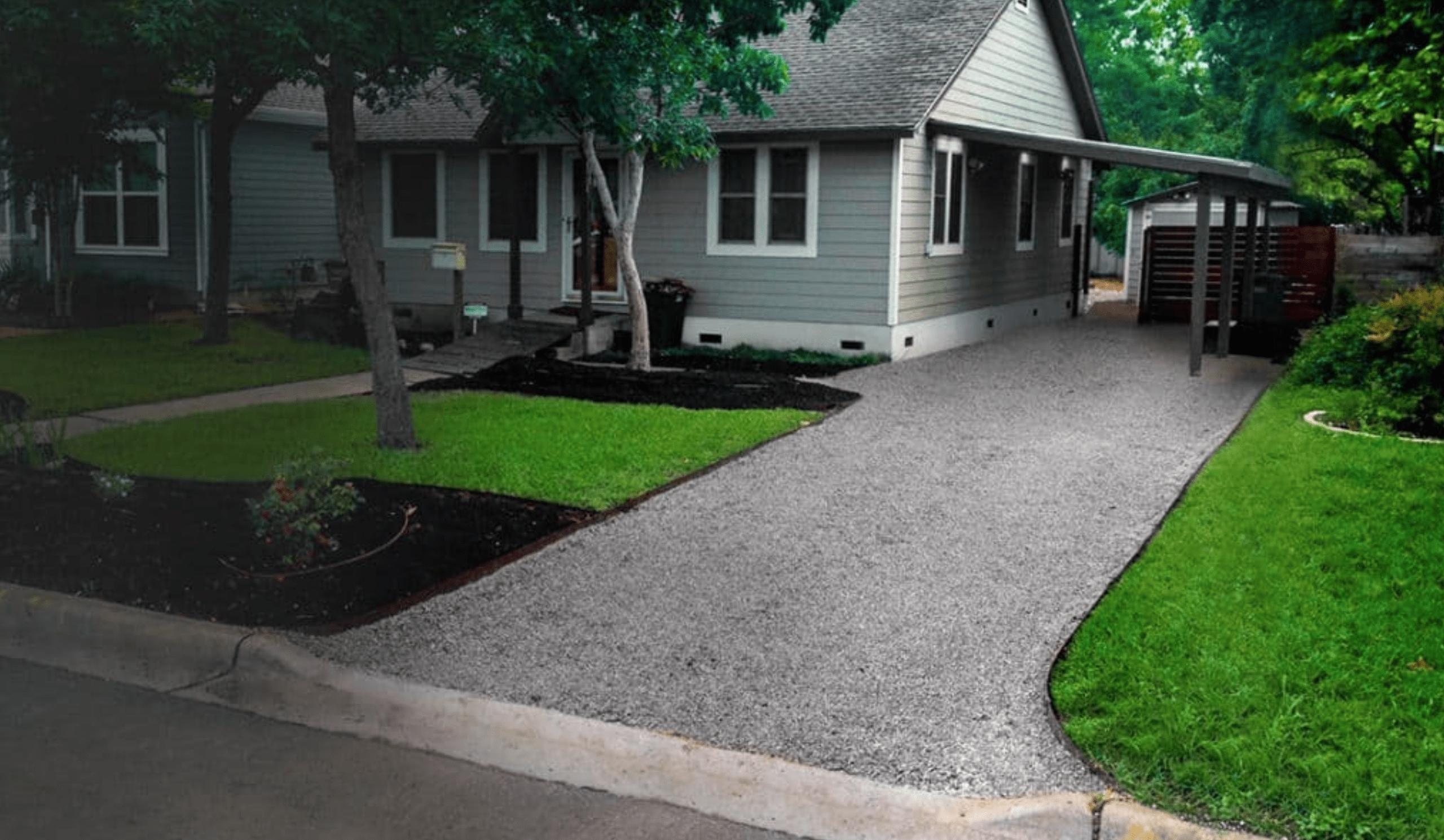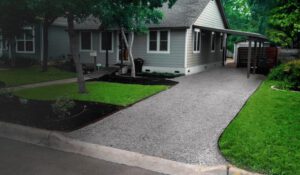Paving a driveway can be a substantial upgrade for your home. SC Driveway Paving Charleston has several different options available, with each one offering unique benefits and costs. The material of choice may also influence a driveway’s heat resistance and environmental impact. Among the best options are permeable pavers, which allow rainwater to flow through and into the soil rather than pooling on top of it.

As with any home improvement project, the costs can vary based on your needs. Talk to multiple driveway paving professionals in your area to get the most accurate cost estimate. They will be able to help you determine which type of paving material is best for your budget and give you an idea of what the installation process will entail. The final cost will depend on several factors, such as the amount of work needed to remove and prepare the site, the load requirements and drainage options for your driveway, and any required permits.
Asphalt is one of the most popular and affordable paving materials for driveways. It typically costs around $5 to $7 per square foot and lasts 15 to 20 years. However, because it is made from petroleum products, its price can fluctuate based on oil prices.
Concrete is a more expensive option for paving driveways, but it can be used to create a unique design that complements your home’s architectural style. It is also very durable and can withstand heavy vehicle traffic. A poured concrete driveway typically costs $8 to $18 per square foot, and it can last up to 40 years.
Brick is a less expensive alternative to pavers and is a good choice for those who want a classic, timeless look for their driveway. It can withstand heavy vehicles and is easy to repair. Brick is also good for colder climates because it resists frost and doesn’t crack easily.
Resurfacing your existing driveway is a cheaper alternative to replacing it. If your driveway is cracked or damaged, you can hire a contractor to resurface it with the same material. This process is usually quicker and easier than replacing it completely. Resurfacing costs range from $2 to $15 per square foot. If you need to widen your driveway, the price will increase similarly. That is because it requires more material to fill the space. Homeowners should always use a professional driveway contractor for resurfacing and other paving jobs to ensure they get the best possible results.
When choosing a driveway paving material, durability is an important factor. The lifespan of a driveway depends on several factors, including the climate and how much traffic it gets. Fortunately, many types of paving materials can be used for your driveway. Some of these include gravel, asphalt, and concrete. Each of these has advantages and disadvantages, so choosing a material that suits your needs is important.
Asphalt is a common choice for driveways because it is durable and affordable. Its downside is that it can crack over time and requires routine maintenance, including refilling and sealing. In addition, asphalt can absorb heat and become hot to the touch, making it uncomfortable for bare feet.
A concrete paver driveway is a more expensive option but can last for decades. Concrete pavers are also resistant to stains and oil spills, making them a great driveway choice. In addition, concrete pavers come in various colors and shapes, so you can find one that matches your home’s style.
In addition to being durable, concrete is also environmentally friendly. However, it is important to remember that concrete requires a lot of energy. Therefore, consider other options if you are looking for an eco-friendly choice.
Another popular option for a driveway is pavers, which can be made of concrete or stone. These are a good choice for homeowners interested in creating a unique design. They can also add a lot of curb appeal to your home.
Before starting your driveway paving project, call 8-1-1 or contact a professional for help with utility lines. It will ensure you don’t damage pipes or other utilities that run under the ground. You should also prepare the site for paving by clearing away any existing surface and removing debris. Taking these steps before beginning any demolition or digging is important, as this can save you money and trouble.
Choosing the right driveway paving material is one of the most important choices when designing your home. Not only will your choice have a major impact on how much your property values increase, but it will also affect the look of your driveway and the overall aesthetics of your home. The key is to consider the climate and your design preferences when choosing a material for your driveway.
Many types of paving materials exist, including poured concrete, asphalt, gravel, and pavers. Each has its pros and cons. Some fabrics require more maintenance and may need to be replaced sooner, while others are better suited to certain climates or architectural styles. Before deciding on a paving material for your driveway, you should research each option to determine the best fit for your needs and budget.
The most common driveway paving method is poured concrete. This paving material is very durable, and it is also relatively inexpensive. It can be molded to create unique designs and comes in various colors and finishes. However, poured concrete can crack over time, which can be expensive to repair.
Gravel driveways are made from crushed rock or sorted aggregate spread on a prepared surface. They are often cheaper than paved alternatives and can last for years. However, they can be hard to shovel in winter and are prone to shifting over time.
Pavers are more expensive than gravel but can be more durable and visually appealing. They are also easy to install and can be customized to complement your home’s style. However, pavers can shift during freezing and thawing cycles, damaging your driveway.
Clay brick is another attractive, affordable option for your driveway. It stands up to heavy use and moderate weather but can crack and crumble if not properly maintained.
One of the best things about green driveways is their permeable options. These allow rainwater to flow directly through the surface and soak into the soil beneath. It helps to lower flood risk, as well as prevent pollution and runoff. Some options include stone pavers made from recycled materials like crushed stone. These are available in various shapes and sizes, so you can find one that fits your style. Another option is sandstone bricks, which are designed to encourage the growth of native moss. As the rainwater passes through these bricks, it will be cooled by the moss and will be able to absorb more nutrients.
Other eco-friendly options for your driveway are gravel and porous asphalt. The former is a natural material found in the local area and is easy to install, maintain, and remove. It also has the advantage of being affordable and long-lasting. The latter is a good choice for those who want to reduce their environmental footprint because it’s made from recycled materials, including old tires. It’s also low-cost, durable, and available in various colors, so you can create a design that matches your home.
Traditional asphalt surfaces could be more environmentally friendly. They collect a lot of heat, which can be uncomfortable to walk on during a hot summer. They are also not durable in extreme weather conditions and can crack and erode over time. These issues are less of a problem with a concrete driveway, which can be recycled after its useful life and is suitable for almost any climate.
Before you start any work on your driveway, it’s important to remember that it’s vital to call 8-1-1 and have a professional check for underground utility lines. That is especially true if you dig up and replace existing pavement. A professional can flag or mark the location of these lines so that you don’t accidentally hit them during the paving process. It will prevent expensive and hazardous damage to your driveway, home, or the environment.


